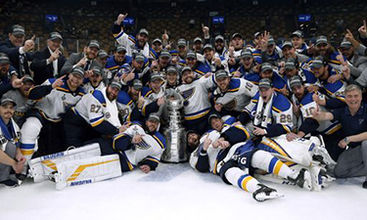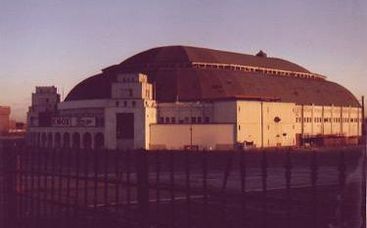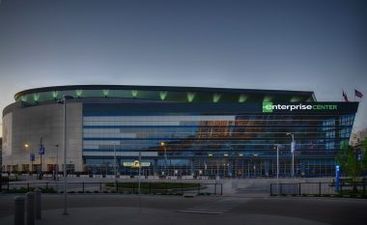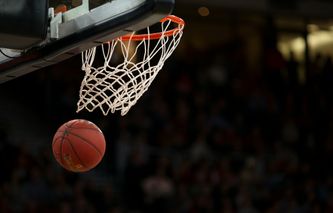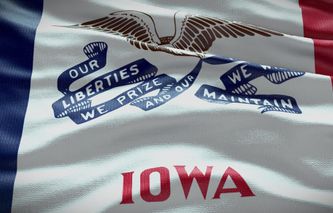53rd Season
First Game Played October 11, 1967
1401 Clark Ave.St. Louis, MO 63103
Tel. (314) 622-2500

Historical Moments
1967/68:The NHL decided to double the number of teams from six to 12 and St. Louis who flirted with the NHL 42 years earlier got one of the six new expansion teams. Taking inspiration from a famous song the team was named the Blues. The Blues played their first game on October 11th and the old St. Louis Arena skating to 2-2 draw against the Minnesota North Stars. The first year Blues were able to coax a former top NHL stars like Dickie Moore out of retirement to help guide the young team. After initial struggled under Lynn Patrick the coaching reigns were handed over to Scotty Bowman who was getting his first head coaching job in the NHL. The Blues would go on to finish the season on a strong note finishing in third place in the all expansion Western Division with a 27-31-16 record. In the playoffs the Blues would get off to a fast start jumping out to a 3-1 series lead over the Philadelphia Flyers. The Flyers would rebound to force a seventh game with an overtime win in St. Louis in Game 6. However, the Blues would recover to take Game 7 in Philadelphia by a score of 3-1. In the Western Division Finals, the Blues again need seven games to beat the Minnesota North Stars, which included three wins in overtime capped by Ron Schock goal in overtime of Game 7. The expansion Blues would go on to face the legendary Montreal Canadiens in the Stanley Cup Finals. The Blues would be swept however as all four games were decided by one goal including two in overtime. Despite being swept in the finals, goalie Glenn Hall would earn the Conn Smythe for playoff MVP.
1968/69:The Blues continued to sign legendary players as Jacques Plante and Glenn Hall shared the goaltending duties. Plante and Hall would go on to win the Vezina Trophy as the Blues finished in first place with a solid record of 37-25-14, as they were helped by the blueline play of the Plager Brothers, Barclay and Bob who became instant fan favorites. However, the highlight of the season came on November 7th when Red Berenson scored six goals in an 8-0 win over the Philadelphia Flyers. In the playoffs the Blues would dominate the West sweeping the Philadelphia Flyers and Los Angeles Kings on the way to the Stanley Cup Finals. However, once again in the finals the Blues would be no match for the Montreal Canadiens who swept their way to a second straight Stanley Cup outscoring the Blues 12-3.
1969/70:In their third season the Blues continued to be the best of the expansion teams winning the Western Division again with a record of 37-27-12. In the playoffs the Blues would need six games to beat the Minnesota North Stars to reach the Western Finals where they beat the Pittsburgh Penguins in six games for a return trip to the Stanley Cup Finals. However, playing an established team in the Finals again the Blues are swept this time the sweep comes at the hands of the Boston Bruins.
1970/71:The Blues continued to play strong hockey as they finished in second place with a record of 34-25-19, as the Chicago Black Hawks are relocated into the Western Division. However, there would be no return trip to the Stanley Cup Finals as the Blues are beaten by the Minnesota North Stars in six games.
1971/72:Sidney J. Salomon III take a more active role in the running of the franchise owned by his father, as Scotty Bowman the clubs General Manager and Coach departs to lead the Montreal Canadiens, he would go on to become the winningest coach in NHL history. In the make of the departure of Bowman the Blues go through three coaches while posting a disappointing record of 28-39-11. However, they would still sneak into the playoffs by finishing in third place. In the playoffs the Blues would make some noise stunning the Minnesota North Stars in six games to reach the semifinals. However, in the semis they would be swept by the Boston Bruins in four straight games.
1972/73:The Blues make the playoffs for the sixth straight season. However, it is a struggle all the way as they held off the Pittsburgh Penguins by three points to make the playoffs with a mediocre record of 32-34-12. In the playoffs the Blues would make a quick exit as they are beaten by the Chicago Black Hawks in five games. In the middle of the season Coach Al Arbour is fired and replaced by Jean-Guy Talbot. Arbour would land a job with New York Islanders and would go on to become the 3rd winningest coach in NHL history.
1973/74:The Blues begin to struggle on and off the ice as the team begins to feel the financial pinch from the WHA while missing the playoffs for the first time with a record of 26-40-12. Garry Unger would provide the only excitement for Blue fans as he led the team in goals and assists, while taking home MVP honors from the All-Star Game.
1974/75:Despite continue financial troubles the Blues make it back into the playoffs by finishing in second place in the Smythe Division with a record of 35-31-14. However, the Blues appearance in the playoffs would be brief as they lose two straight games to the Pittsburgh Penguins.
1975/76:Despite a poor record of 29-37-14 the St. Louis Blues were able to sneak into the playoffs. However, in the playoffs the Blues would drop a three-game series to the Buffalo Sabres losing the last two games in overtime. However, financially hardship continues to take a toll on the Blues as the team is put up for sale while their front office staff was cut to three employees.
1976/77:While new owners were sought Emile Francis is brought in as General Manager and Coach to keep the Blues alive. In his first draft Francis makes three key picks selecting Bernie Federko, Brian Sutter and Mike Liut who will all go on to become key players for the Blues. Under Francis the Blues would make the playoff again while finishing in first place in the mediocre Smyth Division with a less than stellar record of 32-39-9. However, in the playoffs the Blues would be exposed, as they are swept by the Montreal Canadiens in four straight games. Following the season, the Blues would be hit hard by tragedy as defenseman Bob Gassoff is killed in a motorcycle accident.
1977/78:The Blues finally get secure financially backing as the team is purchased by Ralston Purina who renames the old St. Louis Arena the Checkerdome. While Emile Francis leaves the bench to concentrate on running the team as General Manger the Blues struggle missing the playoff while finishing in fourth place with a terrible 20-47-13 record.
1978/79:The remade Blues continue to struggle as they miss the playoffs for the second straight season while finishing in third place with a franchise worse record of 18-50-12.
1979/80:The young Blues begin to show some promise nearly doubling their win total while finishing in second place with a 34-34-12 record, as Bernie Federko leads the team in points with 94. However, in the playoffs the Blues would be swept in three straight games by the Chicago Black Hawks.
1980/81:Just two years after being one of the worst teams in the NHL the Blues solidify themselves as one of the best teams as they win the Smythe Division with an impressive record of 45-18-7, finishing just three points behind the New York Islanders for the best overall mark in the league. In the playoffs the Blues would be tested right away, as they needed a Mike Crombeen goal in overtime to take the series in five games. However, in the second round the Blues would not be bailed out as they are beaten by the New York Rangers in six games.
1981/82:Under geographical realignment the Blues are shifted to the Norris Division. However, just a year after a promising 107-point season the Blues struggle as Coach of the Year Red Berenson is fired in the middle of the season as General Manager Emile Francis takes over to salvage the season. The Blues would go on to post a disappointing record of 32-40-8, but it was good enough for third place and a playoff spot. In the playoffs the Blues would have a strong early showing as they upset the Winnipeg Jets in four games. However, in the Norris Finals they would be upended by the Chicago Black Hawks in six games.
1982/83:Just five years after they rescued the franchise Ralston Purina puts the Blues up for sale claiming they were losing $1.8 million a year. A group wanting to move the team to Saskatoon agreed to purchase the team. However, the NHL refused to allow the Blues to move. While uncertainty was surrounding the future of the franchise the Blues struggled posting a record of terrible 25-40-15 record. However, the Blues would get into the playoffs by finishing in fourth place. In the playoffs the Blues would make a quick exit as they are beaten by the Chicago Black Hawks in four games.
1983/84:After the NHL blocks the Blues move to Saskatoon, the team’s new owners padlock the doors to the Checkerdome, while turning over the team to the NHL. With the Blues future in doubt the team is not allowed to participate in the draft. Before the season started the Blues are sold to entrepreneur Harry Ornest, who hired a new General Manager Ron Caron and a new Coach Jacques Demers. Under new management the Blues would finish in second place with a record of 32-41-7. In the playoffs the Blues would knock off the Detroit Red Wings in four games as they won the final two games at the newly renamed St. Louis Arena in overtime. In the Norris Division Finals, the Blues would put up a string fight before falling to the Minnesota North Stars in overtime of Game 7.
1984/85:After three straight losing seasons the Blues post a winning record of 37-31-12 while winning the Norris Division. However, in the playoffs the success would not carry over, as the Blues are swept by the Minnesota North Stars in three straight games.
1985/86:The Blues make the playoffs for the seventh straight season by finishing in third place with a 37-34-9 record. In the playoffs the Blues would get a measure of revenge as they beat the Minnesota North Stars in a hard fought five game series stealing the final game on the road by a score of 6-3. In the Norris Division Finals, the Blues are pushed to the limit again as the edge the Toronto Maple Leafs by a score of 2-1 to reach the Campbell Conference Finals, where they were a huge underdog facing the Calgary Flames. After taking Game 1 in Calgary, the Blue struggled and found themselves needing a home won in Game 6 to force a seventh game. Down 5-2 with less the nine minutes left all hope looked lost for the Blues. However, a goal by Brian Sutter, and a pair of goals by Greg Paslawski sent the game to overtime where Doug Wickenheiser completed the Monday Night Miracle by knocking a rebound past Mike Vernon. However, the jubilation would not last as the Blues are beaten by the Flames in Game 7 at Calgary 2-1.
1986/87:The Bleus are sold again as a local ownership group led by Michael Shanahan purchases the team from Harry Ornest, while Coach Jacques Demers leaves for the Detroit Red Wings. Under new Coach Jacques Martin the Blues would go on to with Norris Division despite a losing record of 32-33-15. However, in the playoffs the Blues weaknesses are exposed as they are beaten by the Toronto Maple Leafs in six games.
1987/88:The Blues make the playoffs for the ninth straight season despite a less than stellar record of 34-38-8, which was good enough for second place in the mediocre Norris Division. As the season wound down the Blues would pull off a major steal by acquiring Brett Hull and Steve Bozek from the Calgary Flames for Rob Ramage and Rick Wamsley. In the first round the Blues would have no problem getting past the Chicago Blackhawks in five games. However, in the Norris Division Finals the Blues would be beaten by the Detroit Red Wings in five games.
1988/89:In his first full season with the Blues, Brett Hull has a breakout season scoring 41 goals as the Blues finish in second place again with a 33-35-12 record. In the playoffs the Blues would get off to a fast start taking the first two games in overtime on the way to beating the Minnesota North Stars in five games. However, in the Norris Division Finals the Blues would be knocked out by the Chicago Blackhawks in five games.
1989/90:With Brett Hull leading the NHL with 72 goals the Blues make the playoffs for the 11th straight year by finishing in second place with a record of 37-34-9. In the playoffs the Blues would have no problem beating the Toronto Maple Leafs in five games. However, once again the Blues would fall in the Norris Division Finals as they lose a seven-game heartbreaker to the Chicago Blackhawks.
1990/91:Led by Brett Hull who captures the Hart Trophy with an NHL leading 86 goals the Blues finish in second place with a solid 47-22-11, finishing just one point behind the Chicago Blackhawks for the best record in the NHL. In the playoffs the Blues would struggle early as they fell behind the Detroit Red Wings three games to one. However, the Blues would rebound to force a seventh game which the won 3-2 to make it back to the Norris Division Finals. In the Norris Division Finals, the Blues would fall behind 3-1 again facing the Minnesota North Stars. However, there would be no comeback this time as they are beaten in six games.
1991/92:Brett Hull continues to be the top goal scorer in the NHL notching another 70 as the Blues finish in third place with a record of 36-33-11. However, in the playoffs the Blues would be frustrated by the Chicago Blackhawks again as they are knocked off in six games.
1992/93:The Blues play mediocre hockey all season as they barely make the playoffs for the 14th straight season by finishing in 4th place with a 37-36-11 record, holding off the Minnesota North Stars by three points. In the playoffs the Blues would end several years of frustration by stunning the first place Chicago Blackhawks in a four-game sweep. However, the Blues would fall in the Norris Division Finals again as they are beaten by the Toronto Maple Leafs in a seven-game series.
1993/94:Brett Hull and Brendan Shanahan each top the 50-goal mark as the Blues make the playoffs for the 15th straight year by finishing in fourth place in the newly renamed Central Division with a record of 40-33-11. However, in the playoffs the Blues would make a quick exit as they are swept in four straight games, by the Dallas Stars. Following the season, the Blues would sign Mike Keenan to be the team’s new Coach and General Manger as he had a falling out with New York Rangers management after guiding the team to the Stanley Cup.
1994/95:In addition to a new Coach in Mike Keenan the Blues had a new arena as they left the old St. Louis Arena for the brand-new Kiel Center. However, the start of the new era was delayed as the NHL endured a 4-month lockout that wiped out half of the season. When the season finally started in late January the Blues were one of the strongest teams again, finishing in second place with a solid record of 28-15-5. However, in the playoffs the Blues would be stunned in seven games by the Vancouver Canucks. Following the Mike Keenan would anger many loyal Blues fans by trading away Brendan Shanahan.
1995/96:Feeling they needed an extra push to make the playoffs the Blues acquire Wayne Gretzky from the Los Angeles Kings for Craig Johnson, Patrice Tardif, Roman Vopat and draft picks. In 18 games with the Blues Gretzky notches 21 points as the Blues make it into the playoffs for the 17th straight year with a record of 32-34-16. In the playoffs Gretzky would provide a spark as the Blues overcame an injury to goalie Grant Fuhr in Game 1 to beat the Toronto Maple Leafs in 6 games. Backup goalie John Casey continued to keep the Blues hopes alive as they jumped out to a 3-2 series lead against the Detroit Red Wings. However, the Wings would rally and win the series in double overtime in Game 7 on Steve Yzerman’s goal. Following the season, the Blues would lose Gretzky as he signed a free agent deal with the New York Rangers.
1996/97:After losing Wayne Gretzky the Blues were in turmoil as an ugly public feud between Brett Hull and Coach Mike Keenan developed, as the Blues got off to a slow start. On December 19th the Keenan era would come to a sudden end as he is fired as General Manager and Coach. Eventually he would be replaced by Joel Quenneville behind the bench as the Blues recovered and made the playoffs for the 18th straight season with a 36-35-11 record. However, once again the Blues would make a quick exit in the playoffs as they are beaten by the Detroit Red Wings in six games.
1997/98:In his first full season as Coach Joel Quenneville decided to employ a defensive formula. The move worked wonders as even Brett Hull brought into the new system as the Blues finished in third place with a solid 45-29-8 record. In the playoffs the Blues would dominate the Loa Angeles Kings sweeping them in four straight games. However, in the second round the Blues would be upended by the Detroit Red Wings in six games. The season would mark an end of an era as Brett Hull is not resigned following the season as he signs a free agent deal with the Dallas Stars.
1998/99:Despite the loss of Brett Hull the Blues made the playoffs for the 20th straight season by finishing in 2nd place with a record of 37-32-13. Helping to keep the Blues playoff streak alive was Al MacInnis who won the Norris trophy as the best defenseman in the NHL, while Pavol Demitra provided the scoring touch with 37 goals. In the playoffs the Blues would find themselves in a quick hole as they trailed the Phoenix Coyotes three games to one. However, the Blues would rally and take the series in seven games. However, in the second round the Blues would be knocked off again as they are beaten by the Dallas Stars led by Brett Hull in six games. Hull would go on to score the Stanley Cup Clinching goal for the Stars.
1999/00:The Blues get another ownership change as heirs to the Wal-Mart Family fortune purchase the team and the arena, which is, renamed the Savvis Center. In addition to new ownership the Blues land a new goalie trading for Roman Turek who had been a backup on the Dallas Stars. In Turek’s first season with Blues he led the NHL in shutouts with seven while posting a league best 1.95 GAA, as the Blues allowed just 165 goals on the season as team. Leading the way for the Blues tough defense was Chris Pronger who would earn the Norris and Hart Trophies, as the Blues won the President’s Trophy for the best record in the NHL at 51-20-11-1. However, in the playoffs the Blues would suffer a major let down as they dropped three straight games, after taking Game 1 against the San Jose Sharks. The Blues appeared to be on the way to another comeback as they won the next two games to force a seventh game. However, in Game 7 the Blues would become the first team with best overall record to lose a first round series in nine years as they are beaten 3-1 by the Sharks at home.
2000/01:After their disappointing first round ouster the Blues got off to a fast start. However, in the second half they would be slowed by a string of injuries to Pavol Demitra, Al MacInnis, Tyson Nash and Chris Pronger. The Blues managed to stay near the top of the Central Division, thanks to a career-high 40 goals from Scott Young. As the season wound down most of the Bleu injured stars returned. However, not satisfied they went out and acquired Scott Mellanby, Cory Stillman and Keith Tkachuk and the trade deadline. With the new additions the Blues would finish in second place with a strong 43-22-12-5 record, marking the Blues 22nd straight trip to the playoffs. In the playoffs the Blues would get a measure of revenge by beating the San Jose Sharks in six games. In the 2nd round Blues pulled played their best hockey as they easily swept the defending conference champion Dallas Stars in four straight games. For the Blues it was their first trip to the Conference Finals in 15 years as end a string of first and second round losses. However, the Blues would fall short in their quest to make the Stanley Cup Finals as they are beaten by the Colorado Avalanche in five games.
2001/02:The Blues remained one of the top teams in the Western Conference despite instability in goal after Roman Turek is traded in the off-season, finishing in second place with a solid record of 43-27-8-4. In the playoffs the Blues tough defense would help shutdown the Chicago Blackhawks in five games. However, in the second round the Blues are beaten by the eventual Stanley Cup Champion Detroit Red Wings in five games. It marked the fifth time in six years that the Blues are eliminated by the eventual Cup winners.
2002/03:With Chris Pronger missing most of the season due to injury and a seemingly endless carousel in goal one could expect the Blues to have failed and miss the playoffs. However, the old veteran Al MacInnis and the Rookie Barret Jackman, who won the Calder Trophy more then picked up the slack as the Blues made the playoffs for the 24th straight season with a solid record of 41-24-11-6. In the playoffs the Blues got off to a fast start winning Game 1 against the Vancouver Canucks on the road 6-0. After losing Game 2 the Blue came home and continued to play solid hockey winning Game 3 and Game 4 to take a 3-1 series lead. However, with a chance to close things out on the road in Game 5 the Blues fell behind early 4-1, before losing 5-3. The Blues would have a second chance to close things out at home in Game 6. However, once again the Blues saw a rally fall short as they lost 4-3 and were pushed to a seventh game. In Game 7 in Vancouver there would be no rally as the Blues lost 4-1 blowing a 3-1 series lead.
2003/04:Injuries played havoc with the Blues from the start of the season as veteran defenseman Al MacInnis was lost after just three games to an eye injury, while a shoulder injury limited Calder winning defenseman Barrett Jackman to 15 games. Despite the loss of two key players the Blues got off to a solid start as they held a 21-9-4-1 record on January 1st. However, the injuries caught up to the Blues as they won just seven of their next 24 games costing Coach Joel Quenneville his job on February 24th. With Mike Kitchen behind the bench the Blues did not play any better as they went winless in their first 5 games under their new coach. The Blues would eventually get things righted and would finish March strong losing just 2 of their next 12 games as the Blues made the playoffs for the 25th straight season with a record of 39-30-11-2. However, in the playoffs the Blues would struggle as they were quickly dispatched by the San Jose Sharks in five games. Following the playoffs, the Blues would get a black eye as enforcer Mike Danton was arrested after trying to hire a hitman to murder his agent. Danton would eventually plead guilty and would be sentenced to seven and a half years for murder conspiracy charges.
2004/05:Season Cancelled Due to Lock Out
2005/06:Coming out of the Lock Out Blues fans continued to feel the Blues, as the team was up for sale, while fan favorites Al MacInnis retired, and Chris Pronger was traded to the Edmonton Oilers. When the season began it went bad to worse as Keith Tkachuk showed up in training camp out of shape and was benched until he got back to his playing weight. As expected, the Blues would get off to a bad start as they won just two of their first 17 games. As the Blue struggled attendance became sporadic with the Blues at the bottom of the league in attendance. The Blues would remain in last place all season with one of the worst seasons in franchise history as they posted a league worst mark of 21-46-15. When the season was over the Blues would finally have new owners as former President of Madison Square Garden Dave Checketts led a group to buy the struggling franchise, installing longtime Broadcaster John Davidson as the teams new General Manager.
2006/07:Coming off their worst season in franchise history, the Blues were a team just getting set to start over again as they had a new ownership, and a new front office, and soon they would have a new coach as Mike Kitchen was fired on December 11th after a 7-17-4 start. Under new Coach Andy Murray things were slow to improve as the Blues were in the middle of an 11-game losing streak. However, as December ended the Blues started to show signs of life winning five of six games. The Blues would continue to play well in January winning seven games in an eight-game stretch where their only loss came in a shootout. However, what was more impressive was who the Blues beat over that period as they won road games elite teams like the New Jersey Devils, Anaheim Ducks, and San Jose Sharks. Despite their turn around the focus was still on the future, and at the trade deadline the Blues away Bill Guerin and Keith Tkachuk for prospects. The Blues would go on to finish in third Place with a 34-35-13 record, missing the playoffs for the second straight season.
2007/08:The Blues continued to build around youth, as rookies David Perron, Steven Wagner and Erik Johnson were all key players on the team from the start of the season. While Keith Tkachuk who was traded at the trade deadline returned in the off-season. In the early going things looked good for the young Blues as they posted a solid 16-9-1 through the first 26 games. However, the Blues would start coming back to earth in December as they won just two of their next ten games. In the New Year the Blues would continue to struggle as a seven-game winless streak erased all the progress the Blues had made early in the season. In February the Blues continued their slide in the standings as they posted a third straight losing month. The losing continued into March, where the Blues won just three times, as they were eliminated from the playoffs, posting a 33-36-13 record.
2008/09:The Blues suffered a setback before the season even started as second year defenseman Erik Johnson suffered a season ending injury when his foot got caught on the pedal of a golf cart during a team golf outing during training camp. Despite the loss of Johnson, the Blues got off to a strong start, winning four of their first five games, as they held a 10-10-2 record through the first two months. However, after an awful December in which the Blues four of 15 games, it appeared as if the Blues would endure another season in which they did not contend for the playoffs. After showing signs of improvement in January, the Blues turned things around in February lost just twice in regulation, as Chris Mason emerged as one of the most reliable goalies in the NHL during the second half of the season. The Blues led by Mason would continue their strong play in March as they were able to climb from the bottom of the Western Conference in the first half of the season into the playoffs as the sixth seed with a record of 41-31-10. In the playoffs the Blues would run into a wall as they are swept by the Vancouver Canucks in four straight games, with three of the losses coming by just one goal.
2009/10:The Blues began the season in Stockholm, Sweden beating the Detroit Red Wings twice. However, when they came home, they stumbled, winning just four of their next 16 games. Of particular frustration was the Blues proclivity to blow late leads. Early in the season the Blues also struggled at home, posting a 5-13-3 record at the Scottrade Center heading into the New Year. As the year changed so did the Blues coach, as Andy Murray was replaced by Davis Payne on January 2nd, with the Blues holding a mediocre 17-17-6 record. The Blues were showing signs of improvement as they held a 28-25-9 record at the Olympic Break. The Blues would be continuing this momentum into the Blues would continue to play well when play resumed in March, as they won four of their first five games following the break. However, their early struggles proved too much to overcome, as they fell five points short of returning to the playoffs with a record of 40-32-10. As the season ended, Keith Tkachuk announced his retirement, receiving a warm tribute from Blues fans prior to the season’s final game on April 10th.
2010/11:The Blues began the season with a new goalie, picking up Jaroslav Halak, who was coming off a great postseason run from the Montreal Canadiens for Lars Eller and Ian Schultz. Halak would earn a win in his first game as the Blues edged the Philadelphia Flyers in overtime 2-1. Jaroslav Halak would play well early in the season, as the Blues posted a solid 6-1-2 record in October. The Blues continued to play well at the start of November, winning their first three games, before suffering an ugly 8-1 loss to the Columbus Blue Jackets. In that loss on the road on November 10th, T.J. Oshie would suffer a broken ankle. The Blues would go winless in their next five games, as the Blues clearly missed Oshie’s presence on the ice. Injuries continued to pile up in December, but the Blues managed to post a strong month, posting a record of 8-4-2 as they went into the New Year with a record of 20-12-5. The injuries would begin to catch up to the Blues, as they won just two games in January as both Andy McDonald and David Perron both were still suffering concussion symptoms. The Blues would continue to play mediocre hockey in February as the Blues underwent a major shakeup towards the trade deadline. On February 18th, the Blues would trade captain Eric Brewer to the Tampa Bay Lightning for prospect Brock Beukeboom and a draft pick. The next day they would deal Erik Johnson and Jay McClement to the Colorado Avalanche for Kevin Shattenkirk and Chris Stewart in a deal that also saw a swap of draft picks. The Blues would also land draft picks in a deal that sent Brad Boyes to the Buffalo Sabres and Brad Winchester to the Anaheim Ducks. Injuries continued to plague the Blues in March, as Barret Jackman and Alexander Steen both were lost in March 9th overtime win against the Blue Jackets. The Blues would end the season on a strong note, with six wins in their last nine games. However, it would not be enough as they failed to reach the playoffs for the second straight season, posting a record of 38-33-11.
2011/12:After missing the playoffs in two straight seasons, the Blues looked to return to the postseason as David Backes was named the team’s new captain. Things would not start smoothly for the Blues, as they lost their season opener at home 4-2 to the Nashville Predators, losing four of their first six games. Following a 2-1 loss on the road against the Minnesota Wild, the Blue made a change at the top firing Coach Davis Payne, who had the team off to a 6-7-0 start and replacing him with Ken Hitchcock. The team would show an immediate improvement under Hitchcock, as they posted a record of 7-1-2 in his first ten games. With the return of David Perron, who missed 97 games after a concussion the Blues continued their strong play in December as they began the New Year with a solid record of 21-12-5, despite ending the month on a three-game losing streak. The Blues would play even stronger hockey in January, by winning eight of nine games at the start of the calendar year 2012. The Blues were among the best defensive teams in the NHL, as both goalies Brian Elliott and Jaroslav Halak were playing well. Elliott was especially strong, as he led the league with a 1.56 GAA, while posting a .940 save percentage. Elliott would be among the All-Star Goalies, despite starting less than half the Blues games. Halak was nearly as strong, posting a 1.97 GAA, with a .926 save percentage. Together they would lead the league in shutouts with 15, becoming the first tandem to each have at least six shutouts in NHL history. In February the Blues got another boost as Andy McDonald returned from a concussion, after missing 51 games, scoring a goal on February 12th in his first game back, as the Blues blanked the San Jose Sharks 3-0. The Blues would rank among the best teams in the NHL as the season entered the stretch drive, helping them win the Central Division Championship was Brian Elliott, who set a team record with three straight shutouts in March. The Blues would go on to finish the season, with a record of 49-22-11, with 109 points the second best in team history as they got the second seed in the Western Conference Playoffs.
2012 Playoffs:The Blues would face the San Jose Sharks in the playoffs, and suffer a jarring lost in the opener, losing 3-2 in double overtime on a goal by Martin Havlat. With Jaroslav Halak stopping 12 shots, before exiting with an ankle injury and Brian Elliott stopping 17 shots, the Blues would bounce back to win the second game 3-0 and even the series. In San Jose for Game 3, the Blues got a big game from Andy McDonald who had a goal and three assists in a 4-3 road win, ending an eight-game postseason losing streak for the Blues on the road. The Blues would follow it up with a 2-1 win in Game 4 as they took a 3-1 series lead back to St. Louis. The Blues would go on to win the series in five games, wrapping up the series with a 3-1 as they reached the second for the first time since 2002. In the second round the Blues would face the eight seed Los Angeles Kings, who were coming off a stunning upset of the Vancouver Canucks. However, right from the start things did not break the Blues way, as they were continually stonewalled by Goalie Jonathan Quick and the Kings defense, losing the opener 3-1 at home. Things would not get better in Game 2 as the Blues were 0-for-9 on the power play, losing again 5-2. The series would not get better in Los Angeles, as the Kings would go on to sweep the series in four games, winning the last two games 4-2 and 3-1. The Kings would go on to win the Stanley Cup.
2012/13:After a strong season that had a disappointing end in the second round the Blues looked to continue to make strides in the Western Conference. After the lockout delayed the start of the season until January, the Blues made a statement with a 6-0 win over the Detroit Red Wings, as Vladimir Tarasenko and Christ Stewart both notched two goals. Tarasenko, in his first season would lead all rookies in scoring in January with nine points. The Blues would go on to win six of their first seven games, with their lone setback coming against the Chicago Blackhawks. That loss would decide the Central Division, as the Blackhawks had the best start in NHL history, getting a point in their first 25 games. The Blues would run into trouble in February, as injuries to key players like Tarasenko led to a frustrating 4-7-1 month, as they won just one of seven home games. The Blues continued to play mediocre hockey in March as they ended the month barely hanging on to the eighth seed in the playoffs. The Blues were active at the trade deadline, acquiring Jordan Leopold from the Buffalo Sabres and Jay Bouwmeester from the Calgary Flames. Both moves would pay off as the Blues finished the season strong, winning 12 of their last 15 games to skate up the fourth seed with a record of 29-17-2.
2013 Playoffs:In the playoffs the Blues would see the Los Angeles Kings for the second straight season. Looking to avenge last year’s playoff defeat the Blues got a strong effort from Goalie Brian Elliott in the opener but found themselves in overtime after the Kings tied the game 1-1 on a goal by Justin Williams with 31.6 seconds left. In overtime the Kings seemed to get the upper hand when Blues Defenseman Kevin Shattenkirk was given a four-minute penalty for high-sticking. However, on the ensuing power play Kings Goalie Jonathan Quick misplayed the puck, allowing Alexander Steen to score a shorthanded goal for a 2-1 Blues win. The Blues would also get a 2-1 win in Game 2, as Barrett Jackman scored the game winner with 50.4 seconds left. However, when the series shifted to Los Angeles, the Kings got a big game from Jonathan Quick in Game 3, as he stopped all 30 shots in a 1-0 win for LA. Following a 4-3 win for the Kings in Game 4, the Blues faced a must win at home in Game 5 with the series even at two games apiece. The two teams would trade goals in the second and third periods as the game went into overtime even 2-2, as Alex Pietrangelo tied the game for the Blues with 44.1 seconds remaining in regulation. However, this time there would be no fortunate bounce for the Blues, as Slava Voynov scored the game winner eight minutes into overtime to give the Kings a 3-2 win. The Kings would go on to win the series in six games, winning the finale 2-1 on a goal by Dustin Penner at the end of the second period, crossing the goal line with just 0.2 seconds left.
2013/14:Once again the Blues would get off to a strong start, as they won their first four games, including a 7-0 blanking of the Florida Panthers, which saw Jaroslav Halak take over as the Blues franchise leader in shutouts with 17. The Blues would end up posting a 7-1-2 record in October, as Alexander Steen was named first star of the month was named first star of the month with 11 goals, highlighted by four power play goals. Steen would go on to lead the Blues in goals with 33 and points with 62. The Blues continued their strong play in November, posting a record of 11-3-1, including a 6-0-1 record at home. After entering the New Year with a record of 27-7-5, the Blues had rough month in January as they dealt with injuries, including Alexander Steen who was dealing with a concussion. However, the Blues remained near the top of the league standings and went into the Olympic Break with a record of 39-14-6. Despite their solid play, the Blues who were continuing to effectively platoon Jaroslav Halak and Brian Elliott in goal decided to trade for Ryan Miller, sending Halak along with Chris Stewart and William Carrier along with draft picks to the Buffalo Sabres in return. The Blues also received Steve Ott in the deal. Miller struggled upon arriving in St. Louis, posting a record of 10-8-1, in 19 starts with the Blues, despite the team having an overall 11-3-1 record in March. The Blues struggled in April costing themselves a chance to finish with the best record in the NHL and cost them a division title, as they settled for second place in the Central Division with a record of 52-23-7. The 52 wins set a new franchise record, as they fell three points short of their previous best at 111. These records came despite the Blues dropping their final six games in the regular season.
2014 Playoffs:Despite the Blues stellar season, they faced a tough draw in the postseason as the new playoff format after realignment placed a greater emphasis on divisional play, leading to a matchup with the reigning champion Chicago Blackhawks. The opener at the Scottrade Center was a thriller as Jaden Schwartz tied the score 3-3 with under two minutes left. There would not be another tally for the next two periods as they game went into a third overtime. The Blues would win the game 4-3 on a goal by Alexander Steen 26 seconds into triple overtime. Game 2 would also go to overtime as Vladimir Tarasenko tied the game 3-3, with seven seconds left. The Blues would not need as much time to get a 2-0 series lead, as Barrett Jackman scored 5:50 into OT for the 4-3 win. As the series shifted to Chicago, the Blackhawks got back into the series, winning 2-0 in Game 3. Game 4 would go back to the format of the first two games, tied 3-3 at the end of regulation. This time however, the Blackhawks would win the game 4-3 on a goal by Patrick Kane. Returning to St. Louis for Game 5, the Blues and Blackhawks would need overtime again as Chicago took the series lead with a goal by Jonathan Toews. The Blackhawks would go on to win the series in six games, with 5-1 win in the clincher as the Blues lost in six games to the defending champions for the second straight season.
2014/15:After their disappointing first round exit, the St. Louis Blues turned to Brian Elliott to be the goalie after failing to re-sign Ryan Miller. Elliott played well early as the Blues got off to a strong start, as the Blues posted a record of 13-6-1 in their first 20 games. Suffering a lower body injury during a 2-0 win over the Ottawa Senators on November 22nd, Elliott would miss five weeks of action. Without their leading goalie, the Blues signed the all-time greatest goalie Martin Brodeur to back up Jake Allen. Brodeur who holds the record for most career wins and shutout in a 20-year career with the New Jersey Devils was still trying to seek his 700th career win. Brodeur made his Blues debut on December 4th, suffering a 4-3 loss to the Nashville Predators. Martin Brodeur would make seven appearances with the Blues, winning three games before retiring in January. Brodeur would finish his career with 691 wins the final of which came on December 29th with career shutout 125 against the Colorado Avalanche 3-0. Martin Brodeur would make one more appearance with St. Louis, suffering a loss on January 2nd as the Blues were beaten by the Anaheim Ducks 4-3. While Martin Brodeur drew the most attention during Brian Elliott’s absence it was Jake Allen who saw a bulk of the action, as the Blues went into the New Year with a record of 22-12-3. Once Elliott returned the Blues were ready to take off, as they won 12 of 13 games following Brodeur’s last appearance, with the only loss coming in overtime. Powered by their strong January, the Blues would go on to finish the season on top of the Central Division with a record of 51-24-7. Both goalies were strong all season with the Blues, as Brian Elliott won 26 games and posted a 2.26 GAA, and Jake Allen won 22 games with a 2.28 GAA. The Blues offense was led by Vladimir Tarasenko who had a breakout season with 73 points, including a team best 37 goals. Also having strong offensive seasons were Alexander Steen who had a team best 40 assists and Jaden Schwartz who each topped 60 points.
2015 Playoffs:Looking to avoid a repeat of past disappointments the Blues would take on the Minnesota Wild in the first round. However, the Blues came out flat at the Scottrade Center in Game 1 as Jake Allen started the postseason in goal, suffering a 4-2 loss. The Blues would bounce back to with a 4-1 win in Game 2, as Vladimir Tarasenko had his first career playoff hat trick. As the series shifted to Minnesota, the Wild defense continued to frustrate the Blues, limiting St. Louis to 17 shots in a 3-0 win. The Blues would find their offense in Game 4, as Tarasenko scored twice to the lead the way in a six-goal explosion as the Blues evened the series with a 6-1 win. However, the Blues could not keep the momentum as they suffered a 4-1 loss at home in Game 5, with Devan Dubnyk stopping 36 of 37 shots following an early goal by Vladimir Tarasenko. Despite their great regular season, the Blues playoff failures continued as their season ended meekly with a 4-1 loss to the Wild in Game 6.
2015/16:After three straight early playoff exits, the St. Louis Blues entered the season with much to prove. Early on things looked good for the Blues, as they posted an 8-2-1 record that put them at the top of the Central Division. As the month ended, injuries began to take a toll as the Blues lost Jaden Schwartz for 49 games to a broken ankle. In December Alexander Steen who had been the Blues leading scorer was lost to a hamstring injury, missing the rest of the regular season. Despite Schwartz and Steen missing a significant amount of time, the Blues remained one of the top teams in the West as they entered the New Year with a record of 23-13-4. Helping the Blues keep a winning beat was Vladimir Tarasenko who led the Blues in scoring with 74 points, and 40 goals. Brian Elliott and Jake Allen split the goaltending duties, with Elliott’s .930 save percentage ranking second overall in the NHL, highlighted by a string of three straight shutouts in March. The Blues would finish the season with a record of 49-24-9, which was second in the Central, as well as the entire Western Conference.
2016 Playoffs:As the playoffs began the St. Louis Blues faced a test right away as they were matched up against the reigning Stanley Cup Champion Chicago Blackhawks. The two longtime rivals were meeting for the 20th time in the postseason, with Chicago winning eight of the last 11 meetings, including rallying from down 3-1 in 2014. The opener would be a battle of the goalies, as Brian Elliott was brilliant stopping 35 shots, as David Backes scored the game’s only goal 9:04 into overtime. Game 2 would also see goals at premium, as the game was tied 1-1 late in the third period when Andrew Shaw gave Chicago a 2-1 lead with a power play goal with just 4:19 left in regulation. The Blackhawks would add an empty net goal and hang on to 3-2 to even the series. Brian Elliott was at the top of his game, as the series shifted to Chicago, stopping 44 of 46 shots as Patrik Berglund and Jaden Schwartz scored in the third period to give St. Louis a 3-2 win. Alexander Steen returned to the ice for the first time since December and scored the game winner as the Blues edged the Blackhawks 4-3 to take a commanding 3-1 series lead. With a chance to close out the series at home the Blues lost a double overtime heartbreaker 3-2. Things looked good early for the Blues as they jumped out to a 3-1 lead in the first period. However, the Blackhawks scored five unanswered goals over the final two periods to win the game 6-3 and send the series to a seventh game. The Blues raced out to a 2-0 lead at the Scottrade Center in Game 7 but began to see a familiar pattern as the Blackhawks rallied to even the score in the second period. The game remained tied until Troy Brouwer scored midway through the third period to regain the lead. The rest was up to Brian Elliott who stopped 31 of 33 shots to win the series with a 3-2 decision. In the second round the Blues faced the Dallas Stars who had the top overall record in the West. Brian Elliott was strong in Game 1, but it was not enough as the Stars high octane offense beat him twice on 42 shots to win opener 2-1. The Blues got off to a good start in Game 2, building a 3-1 lead in the first period, only to see the game go to overtime after the Stars scored a pair in the third period. In overtime David Backes put home a rebound shot on the power play to even the series with a 4-3 win. As the series shifted to St. Louis, the Blues hit all the right notes, winning 6-1 to takes control of the series as Vladimir Tarasenko and David Backes each had a pair of goals. However, the Stars rebounded to win Game 4 in overtime 3-2. Back in Dallas, the Blues got goals from four different scorers as Brian Elliott was nearly flawless, allowing just one goal on 28 shots to win the game 4-1. The Stars continued to fight back as they chased Elliott in the first period with three goals on seven shots. Jake Allen was flawless the rest of the way, but Dallas held on to win 3-2 to force a seventh game. Brian Elliott rebounded in Game 7, stopping 31 of 32 shots, while the Blues got six goals for six different players to win the game 6-1 as they advanced to the Western Conference Finals for the first time since 2525. The St. Louis Blues would face the San Jose Sharks in the Conference Finals and drew first blood with Brian Elliott again stopping 31 of 32 shots to win the game 2-1. However, the next two games would bring nothing but frustration for the Blues, as they were blanked 4-0 in Game 2 and 3-0 in Game 3. The Blues would take out their frustrations in Game 4, as Troy Brouwer and Kyle Brodziak each scored twice in a 6-3 win that evened the series at two games apiece. The Sharks though had their own six goal outburst in the Game 5 back in St. Louis and returned to San Jose looking to clinch the series after a 6-3 win at the Scottrade Center. The Sharks continued the momentum into Game 6, scoring another five goals to advance to the Stanley Cup Final for the first time in franchise history with a 5-2 win.
2016/17:Before the season started, it was announced that Mike Yeo would take over Ken Hitchcock as the coach of the St. Louis Blues following the season. With Yeo, serving as an assistant and Hitchcock in lame duck status, the Blues sputtered through the first three months, and held a 19-13-5 record at the end of December. New Year’s Day was extra special for the Blues as they hosted the Chicago Blackhawks in the Winter Classic at Busch Stadium, winning 4-1. Despite the outdoor win, the Blues struggles continued as they went 4-8 the rest of January, leading General Manager Doug Armstrong to dismiss Ken Hitchcock and promote Mike Yeo to head coach on February 1st. The Blues would win seven of their first eight games with Yeo in charge behind the bench. Despite the Blues trading one of their top defenseman Kevin Shattenkirk to the Washington Capitals at the trade, the team found its stride in March, posting a record of 11-2-2 to get back in playoff position. The Blues would finish the season with a record of 46-29-7, good enough for third place in the Central Division. Vladimir Tarasenko was the leading scorer for St. Louis, with 75 points, as he also led the team with 39 goals and 36 assists.
2017 Playoffs:The St. Louis Blues faced the Minnesota Wild in the first round of the Stanley Cup Playoffs. The series was extra personal for Mike Yeo, having been fired the previous season by Minnesota. Game 1 saw an unreal performance by goalie Jake Allen as frustrated the Wild all night, before Zach Parise tied the game 1-1, with 23 seconds left in regulation. The late goal would be the only one allowed by Allen, as Joel Edmundson won the game at 17:48 of sudden death, with Jake Allen being the big star with 51 saves in a 2-1 win. Allen was sharp again in Game 2, as Parise’s second period goal was all Minnesota could manage, as Jaden Schwartz goal late in regulation was the game-winner as the Blues won 2-1 to take the first two games on the road. At the Scottrade Center for Game 3, it was more Jake Allen magic as the Blues recorded a 3-1 win, with Allen stopping 40 of 41 shots. With the Blues looking for a sweep, the Wild finally got the best of Jake Allen winning 2-0 in Game 4. Back at the Xcel Energy Center in Game 5, the Blues needed overtime to hold off the pesky Wild 4-3 as Jake Allen made 34 saves, while Magnus Paajarvi scored the series clincher in sudden death. Next up for the St. Louis Blues was the Nashville Predators. In Game 1 at the Scottrade Center, the Blues found themselves down 3-1 entering the third period but tied things up on goals by Jaden Schwartz and Vladimir Sobotka. However, the Predators responded with a goal by Vernon Fiddler with 5:05 left in regulation to steal the opener 4-3. The Blues would bounce back with a 3-2 win in Game 2, as Vladimir Tarasenko scored twice, including the game winner with 3:51 left in regulation. The Predators dominated Game 3 as the series shifted to Nashville, winning 3-1 as Jake Allen did his best to keep the Blues in the game with 31 saves. Game 4 was scoreless until the third period, when Ryan Ellis scored a power play goal to give Nashville the lead, James Neal added a second goal as the Blues looking to get back in the game got a goal by Joel Edmundson with just under four minutes left. However, St. Louis could not find the equalizer as the Predators won the 2-1 to take a commanding 3-1 series lead. The Blues defense put the clamps down on Nashville in Game 5 at home and won 2-1 to keep their dreams of the Stanley Cup alive, as Schwartz’s early third period goal was the difference. The Blues came out strong in Game 6 in Music City, taking the lead on a first period goal by Paul Stastny. The Predators however, answered with a goal by Roman Jossi in the second and took the lead for good on a goal by Ryan Johnansen early in the third period as the ended the Blues season with a 3-1 win.
2017/18:In Mike Yeo’s first full season as coach, the St. Louis Blues looked to build off a second-round playoff exit. Things looked good early, as they won ten games in October, including their first four games to start the season, climbing to the top of the Central Division standings. The great start also included a perfect 5-0 mark at home. Over the next two months, the Blues began scuffling, as the New Year approached, St. Louis dropped seven of their last ten games, entering 2018 with a record of 24-15-2. A major part of the Blues’ struggles was caused due to injuries as Jaden Schwartz missed a month with an ankle injury. Schwartz returned in January, and the Blues got back on track, posting a 7-3-1 record overall during the month. Injuries though began takin their toll again in February, as Joel Edmundson was lost for the season with a broken arm. February would be a rough month for the Blues as they suffered a seven-game winless streak, this led the team to begin evaluating for the future as Paul Stastny was traded to the Winnipeg Jets for draft picks. The Blues got back in the playoff chase with a strong March, as won six of eight games. However, after winning just one of their final six games, St. Louis found themselves one point away from the second Wild Card with a record of 44-32-6. Brayden Schenn was the leading scorer for St. Louis with 70 points, while Vladimir Tarasenko had a team-high 33 goals.
2018/19:After their disappointing finish, the St. Louis Blues looked to add some offense by acquiring Ryan O’Reilly from the Buffalo Sabres. To say things did not start well for St. Louis would be an understatement, as the Blues won just one of their first six games as ended October at 3-4-3. The Blues continued to struggle in November, leading to the dismissal of coach Mike Yeo on November 19th with the team sitting at a record of 7-9-3. Craig Berube would be named interim coach, but the Blues continued to struggle, entering the New Year with a record of 15-18-4 as they sat at the bottom of the Central Division. On January 6th, the Blues were in Philadelphia, watching an NFL playoff game at a local bar the night before a game against the Flyers. At the bar, while the Philadelphia Eagles were playing the Chicago Bears, the DJ kept playing the song “Gloria” by Laura Branigan. By the time the night was over, the song was stuck in the team’s head. Looking to change things up, the Blues had Jordan Binnington making his first NHL start in goal one night later. Binnington had been in the Blues minors since 2011 and made just one appearance in 2016. Jordan Binnington got a shutout win as the Blues beat the Flyers 3-0 to improve to 17-19-4. The Blues celebrated their win by playing “Gloria” in the locker room after the game. The Blues rookie goalie played well, as they began turning things around. Following the All-Star Break, the Blues became the hottest team in the NHL, winning 11-straight games. With “Gloria” now becoming the team’s rallying song, the Blues climbed back into the playoff race, as they posted a record of 12-1-1 in February. While St. Louis was unable to keep up the pace in March, they were able to make one last playoff push, going 9-1-2 over the last 12 games. This enabled the Blues to finish third in the Central Division with a record of 45-28-9. Jordan Binnington was a significant part of the turnaround, as he posted a record of 24-5-1 in 30 games. Ryan O’Reilly leads the team in scoring with 77 points, as he won the Selke Trophy as the league’s best Defensive Forward. Vladimir Tarasenko once again had a team-high 33 goals.
2019 Playoffs:After their strong finish, the St. Louis Blues were matched up against the Winnipeg Jets in the playoffs. In Game 1, the Blues got a strong outing from Jordan Binnington and won 2-1. The Blues also took Game 2 in Winnipeg, 4-3, as Oskar Sundqvist scored twice. Back in St. Louis for Game 3, the Blues stumbled, suffering a 6-3 loss. Binnington had a bounce-back performance in Game 4, making 37 saves, but the Blue suffered a 2-1 loss in overtime. Back in Winnipeg for Game 5, the Blues were back on their heels as the Jets scored 12 seconds into the game to take an early lead on a goal by Adam Lowry. Kevin Hayes would later score to make it 2-0 for Winnipeg. A lead that would stand until the third period, when Ryan O’Reilly scored on a power play to breathe life back in the Blues. Brayden Schenn later scored the tying goal, as the game appeared heading for overtime when Jayden Schwartz scored with 15 seconds left to win the game 3-2. Schwartz carried over the emotion to Game 6 at the Enterprise Center, netting a hat trick as the Blues won 3-2 to take the series in six games. Moving on, the Blues faced the Dallas Stars in the second round. The Blues took Game 1 at home 3-2, as Vladimir Tarasenko scored twice. Dallas bounced back with a 4-2 win in Game 2 into even the series. Game 3 in Dallas would go back and forth, symbolic to the entire series, with Patrick Maroon scoring the game-winner with under two minutes left as the Blues recorded a 4-3 victory. Dallas again answered with a 4-2 win in Game 4 and took the series lead 3-2, with a 2-1 win in St. Louis. Facing elimination, the Blues came out strong in Game 6, winning 4-1 to return home for a seventh game. Game 7 would be filled with tension and drama, as both teams scored in the first period. Most of the night, the Blues controlled the ice as they fired 54 shots at Ben Bishop, but it would take two overtimes for Maroon to score the game-winner, sending the Blues to the Western Conference Finals with a 2-1 win. In a rematch of the 2016 Western Finals, the Blues were facing the San Jose Sharks looking to reach the Stanley Cup Final for the first time in 49 years. The series did not start well for the Blues as they suffered a 6-3 loss in the opener. After a 4-2 win in Game 2, the Blues came home looking to take control of the series. The Blues had their chances in Game 3, as they held a 4-3 lead when Logan Couture tied the game with 61 seconds remaining. The Sharks would win the game in overtime, 5-4 on a goal by Erik Karlsson. The Blues would even the series with a 2-1 win in Game 4, as Jordan Binnington made 29 saves. Binnington was even stronger in Game 5, stopping all 21 shots, as Jaden Schwartz netted a hat trick to deliver a 5-0 win in San Jose. Back home in Game 6, the Blues dominated winning 5-1 to advance to the Stanley Cup Final for the first time since 1970.
2019 Stanley Cup Final:The St. Louis Blues reached the Stanley Cup Finals in each of their first three seasons, as part of the all expansion division. In each series, they were dominated by an established team losing in four straight games. The latest in 1970 when they were beaten by the Boston Bruins on Bobby Orr’s famous overtime goal. Once again, the Blues would face the Bruins, as they sought to put a cap to their magical turnaround, as “Gloria” became the anthem and rallying cry, complete with a dancing chinchilla. Also driving the Blues was a young 11-year-old girl named Laila Anderson, who was battling a rare disease who became the team’s biggest cheerleader and inspiration. The series did not start well for St. Louis as the Bruins took Game 1 at TD Garden 4-2. The Blues bounced back to take Game 2 in overtime 3-2, as Carl Gunnarsson scored the game-winner as they won their first Finals game in 14 tries. Game 3 at the Enterprise Center saw the Blues suffer their worst loss of the postseason as the Bruins came in a won 7-2 to regain control of the series. As they have all postseason, the Blues bounced back in Game 4, winning 4-2 as Ryan O’Reilly scored twice. Back in Boston, Jordan Binnington had his best game of the postseason, making 38 stops as the Blues won 2-1 to take a 3-2 series lead. With the Stanley Cup in the building, there was an air of anticipation at the Enterprise Center in Game 6. However, the Blues suffered a letdown as the Bruins won 5-1 to send the series back to Boston for Game 7. The Bruins came out at TD Garden looking to dominate as they outshot the Blues 12-4. However, Binnington made ever save, while Ryan O’Reilly and Alex Pietrangelo notched goals to give St. Louis a stunning 2-0 lead. The Bruins continued to control the attack in the second period, but again Jordan Binnington saved the day with 11 saves to keep the score at 2-0. In the third period, the Blues added goals by Brayden Schenn and Zach Stanford to extend the lead to 4-0. Binnington was strong again, as the Bruins did not score until there was 2:10 left in the game; by then, the Blues had the cup in their grasp, winning 4-1. Ryan O’Reilly won the Conn Smythe as Playoff MVP, scoring a franchise-record 23 points in the postseason.
Championship Teams
Blues Arenas
Blues Best
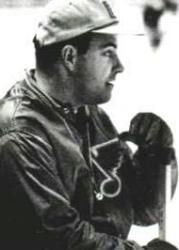 Scotty Bowman Coach 1967-70, 1970/71 | 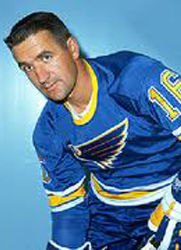 Gerry Melnyk 1967/68 | 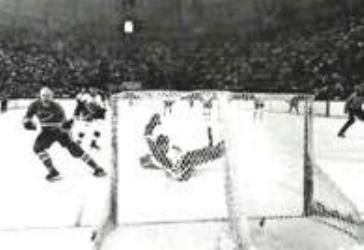 Ron Schock 1967-1969 Overtime Game 7 goal in 1968 Semifinals | 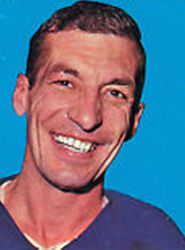 Camille Henry 1968-1970 | 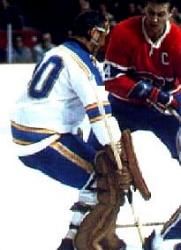 Jacques Plante 1968-1970 1969 Vezina | |
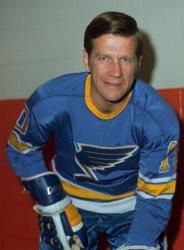 Phil Goyette 1969/70 | 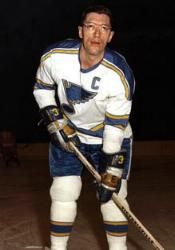 Al Arbour 1967-1971 | 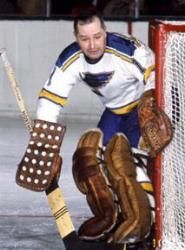 Glenn Hall 1967-1971 1968 Conn Smythe 1969 Vezina | 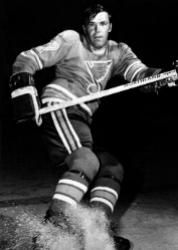 Jean-Guy Talbot 1967-1971 | 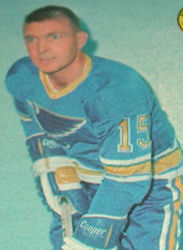 Bill McCreary 1967-1971 | 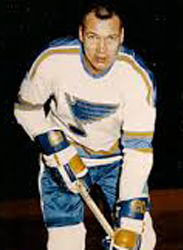 Ab McDonald 1968-1971 |
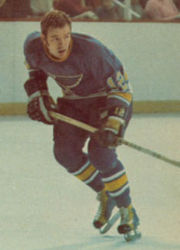 Terry Crisp 1967-1972 | 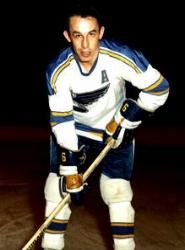 Jim Roberts 1967-1972, 1977/78 | 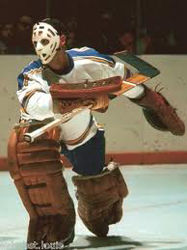 Ernie Wakely 1969-1972 | 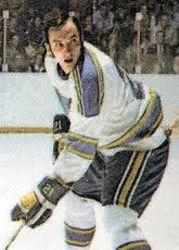 Christian Bordeleau 1970-1972 | 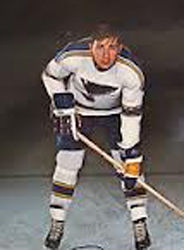 Jim Lorentz 1970-1972 | 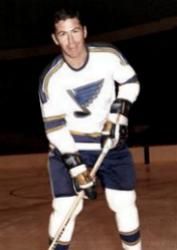 Noel Picard 1967-1973 |
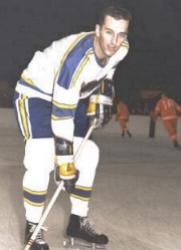 Frank St. Marsille 1967-1973 | 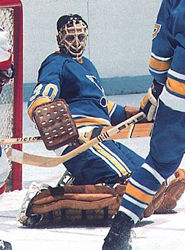 Jacques Caron 1971-1973 | 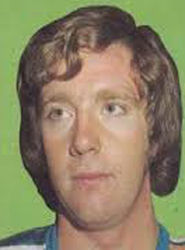 Mike Murphy 1971-1973 | 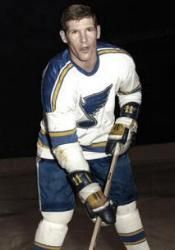 Gary Sabourin 1967-1974 | 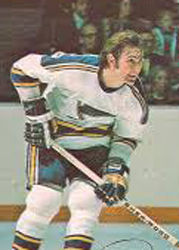 Jack Egers 1971-1974 | 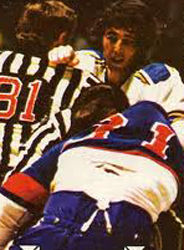 Phil Roberto 1971-1974 |
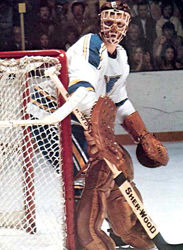 Wayne Stephenson 1971-1974 | 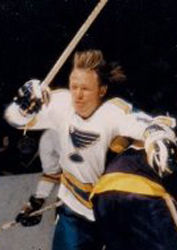 Glen Sather 1973/74 | 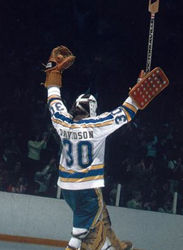 John Davidson 1973-1975 | 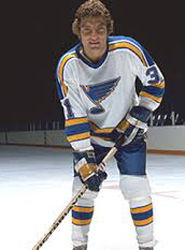 Larry Sacharuk 1974/75 | 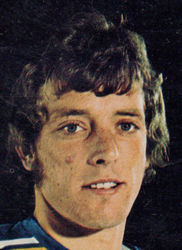 Wayne Merrick 1972-1976 | 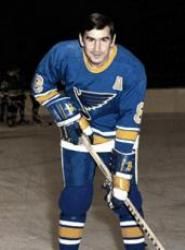 Barclay Plager 1967-1977 |
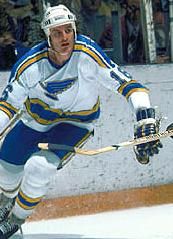 Pierre Plante 1972-1977 | 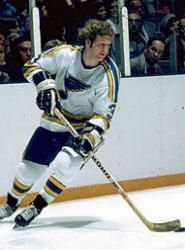 Bob Gassoff 1973-1977 | 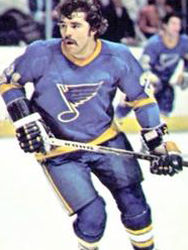 Bob MacMillan 1975-1977 | 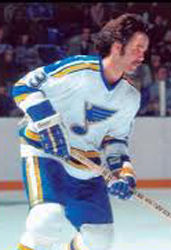 Derek Sanderson 1975-1977 | 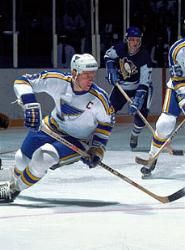 Red Bernerson 1967-1971, 1974-1978 | 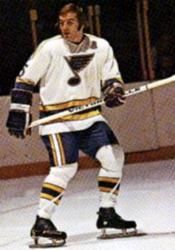 Bob Plager 1967-1978 |
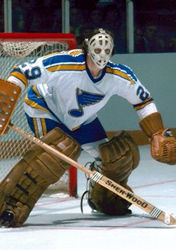 Yves Belanger 1974-1978 | 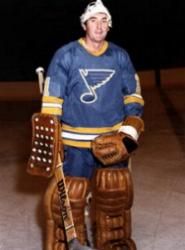 Eddie Johnston 1974-1978 | 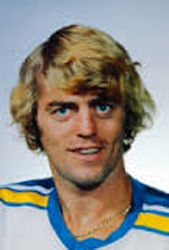 Curt Bennett 1970-1972, 1977-1979 | 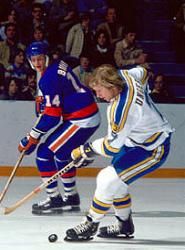 Garry Unger 1970-1979 | 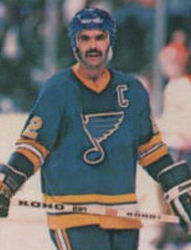 Barry Gibbs 1977-1979 | 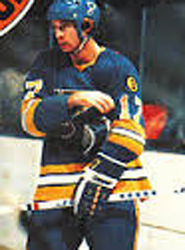 Inge Hammarstrom 1977-1979 |
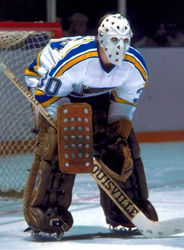 Phil Myre 1977-1979 | 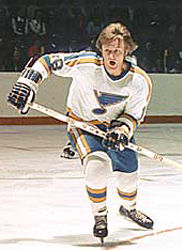 Floyd Thomson 1971-1978, 1979/80 | 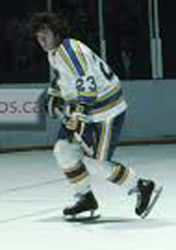 Bob Hess 1974-1979, 1980/81 | 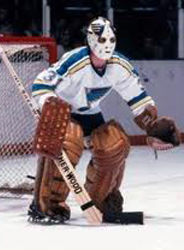 Ed Staniowski 1975-1981 | 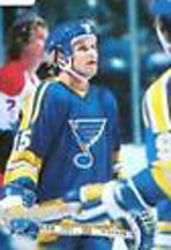 Tony Currie 1977-1982 | 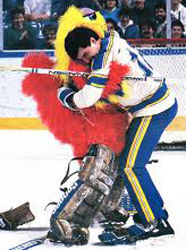 Joe Micheletti 1979-1982 |
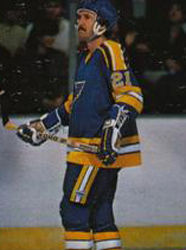 Mike Zuke 1978-1983 | 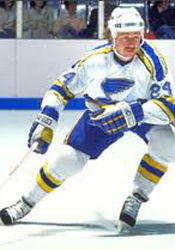 Blair Chapman 1979-1983 | 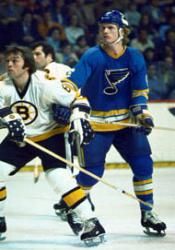 Larry Patey 1975-1984 | 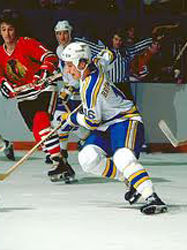 Jack Brownschidle 1977-1984 | 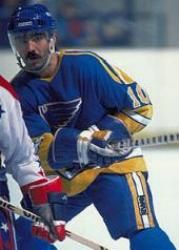 Wayne Babych 1978-1984 | 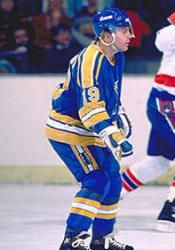 Blake Dunlop 1979-1984 |
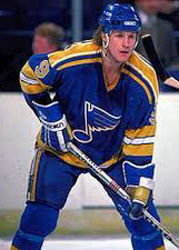 Perry Turnbull 1979-1984, 1987/88 | 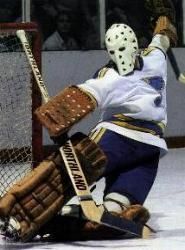 Mike Liut 1979-1985 | 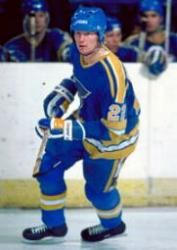 Jorgen Petterson 1980-1985 | 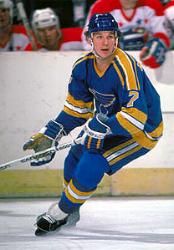 Joe Mullen 1979/80, 1981-1986 | 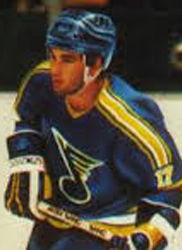 Kevin LaVallee 1984-1986 | 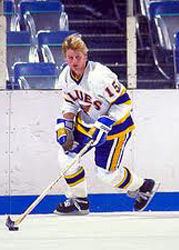 Mark Reeds 1981-1987 |
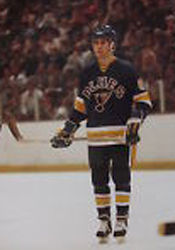 Dave Barr 1983-1987 | 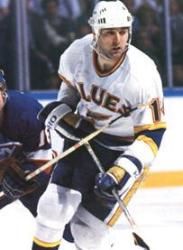 Doug Wickenheiser 1983-1987 | 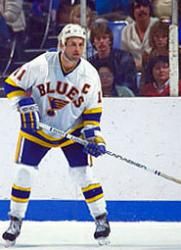 Brian Sutter 1976-1988 | 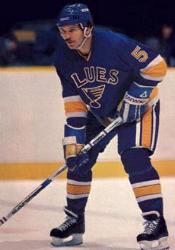 Rob Ramage 1982-1988 | 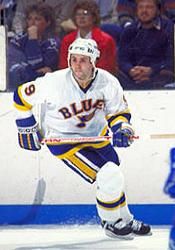 Doug Gilmour 1983-1988 | 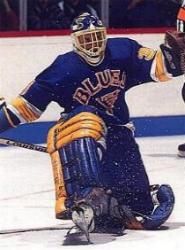 Rick Wamsley 1984-1988 |
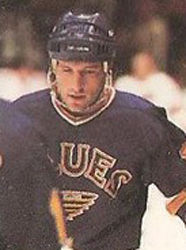 Ron Flockhart 1985-1988 | 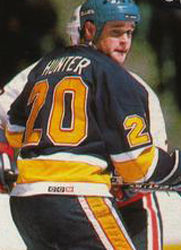 Mark Hunter 1985-1988 | 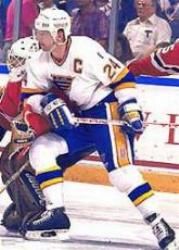 Bernie Federko 1976-1989 | 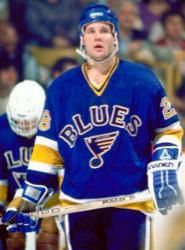 Greg Paslawski 1983-1989 | 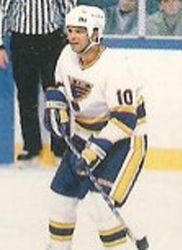 Tony McKegney 1987-1989 | 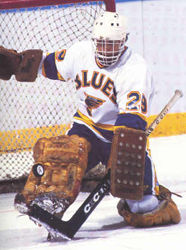 Greg Millen 1984-1990 |
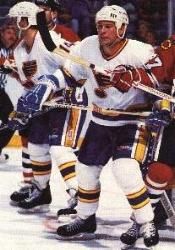 Brian Benning 1984-1990 | 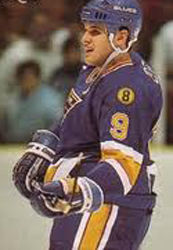 Peter Zezel 1988-1990, 1996/97 | 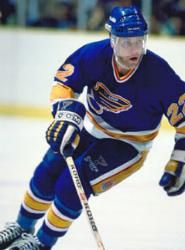 Rick Meagher 1985-1991 1990 Selke | 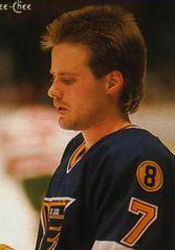 Cliff Ronning 1986-1991 | 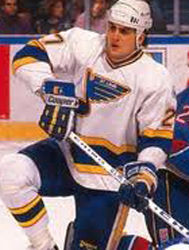 Sergio Momesso 1988-1991, 1996/97 | 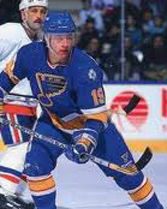 Rob Brind’Amour 1989-1991 |
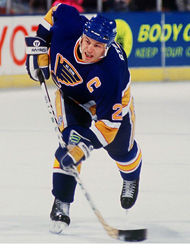 Scott Stevens 1990/91 | 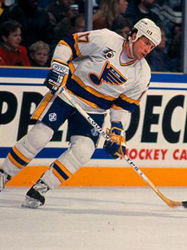 Gino Cavallini 1985-1992 | 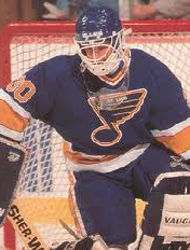 Vincent Riendeau 1988-1992 | 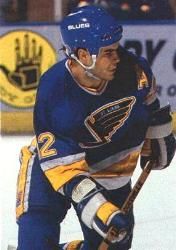 Adam Oates 1989-1992 | 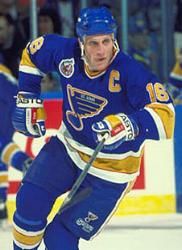 Brett Hull 1991 Hart Trophy & 86 Goals | 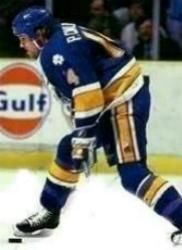 Paul Cavallini 1987-1993 |
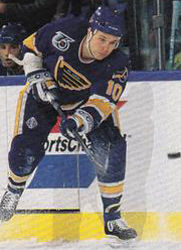 Dave Lowry 1988-1993 | 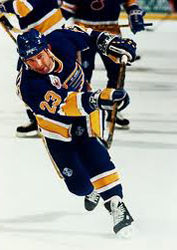 Rich Sutter 1989-1993 | 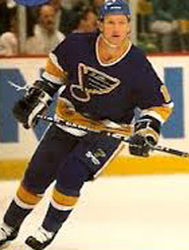 Ron Wilson 1989-1993 | 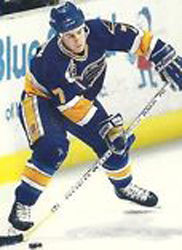 Nolan Emerson 1990-1993 | 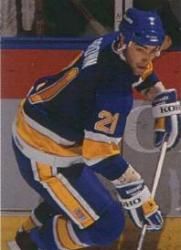 Jeff Brown 1989-1994 | 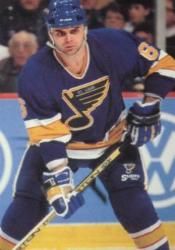 Garth Butcher 1990-1994 |
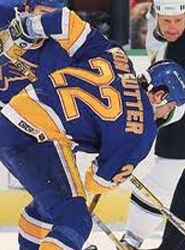 Ron Sutter 1991-1994 | 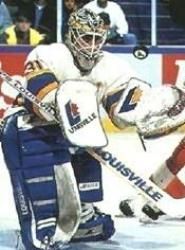 Curtis Joseph 1989-1995 | 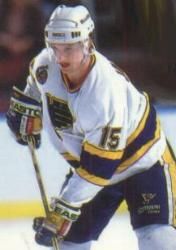 Craig Janney 1991-1995 | 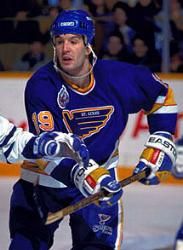 Brendan Shanahan 1991-1995 | 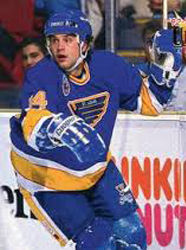 Kevin Miller 1992-1995 | 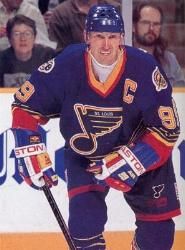 Wayne Gretzky 1995/96 |
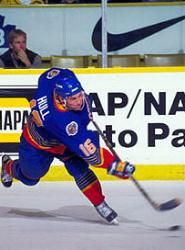 Brett Hull 1987-1998 | 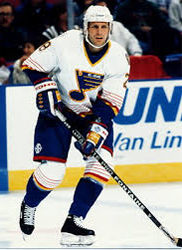 Steve Duchesne 1993-1995, 1997/98 | 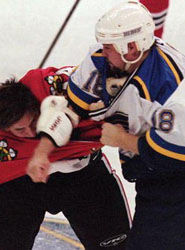 Tony Twist 1989/90, 1994-1999 | 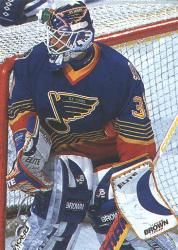 Grant Fuhr 1995-1999 | 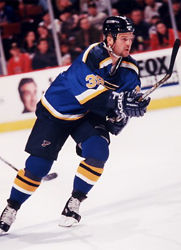 Kelly Chase 1989-1994, 1997-2000 | 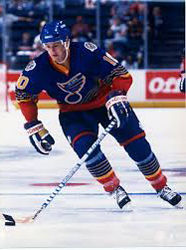 Jim Campbell 1995-2000 |
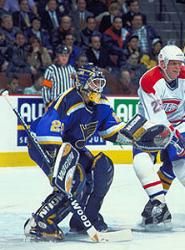 Jamie McLennan 1997-2000 | 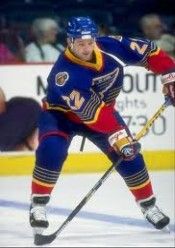 Craig Conroy 1996-2001 | 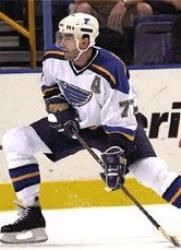 Pierre Turgeon 1996-2001 | 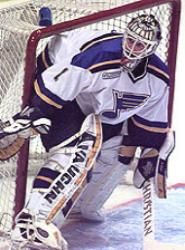 Roman Turek 1999-2001 | 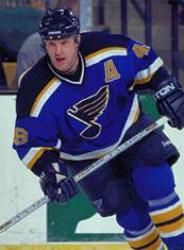 Scott Young 1998-2002, 2005/06 | 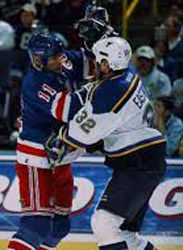 Mike Eastwood 1997-2003 |
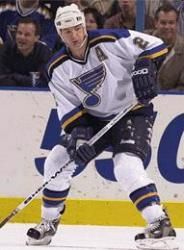 Al MacInnis 1994-2004 1999 Norris Trophy | 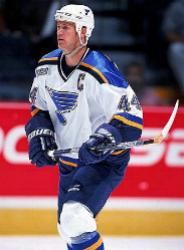 Chris Pronger 1995-2004 2000 Norris & Hart | 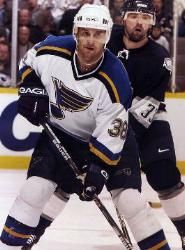 Pavol Demitra 1996-2004 | 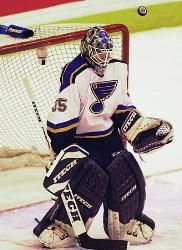 Brent Johnson 1998/99, 2000-2004 | 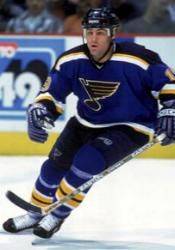 Scott Mellanby 2000-2004 | 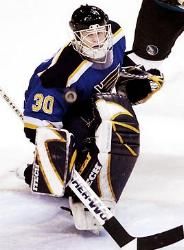 Chris Osgood 2002-2004 |
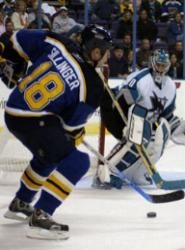 Mike Sillinger 2003-2006 | 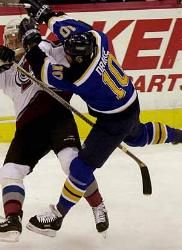 Dallas Drake 2000-2007 | 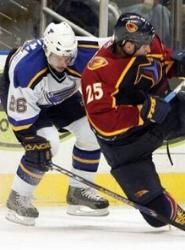 Petr Cajanek 2002-2007 | 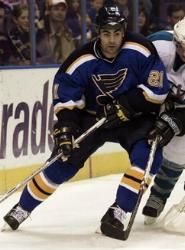 Jamal Mayers 1996/97, 1998-2008 | 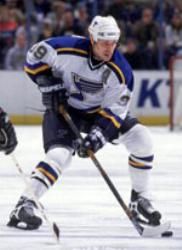 Doug Weight 2001-2006, 2006-2008 | 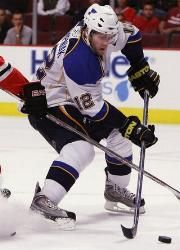 Lee Stempniak 2005-2009 |
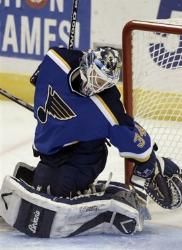 Manny Legace 2006-2009 | 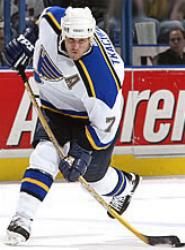 Keith Tkachuk 2000-2007, 2007-2010 | 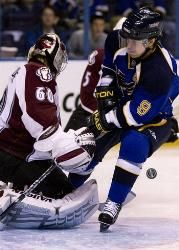 Paul Kariya 2007-2010 | 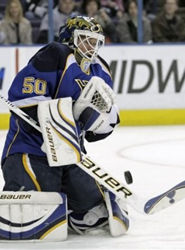 Chris Mason 2008-2010 | 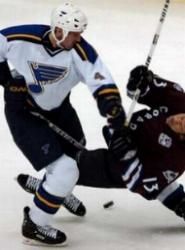 Eric Brewer 2005-2011 | 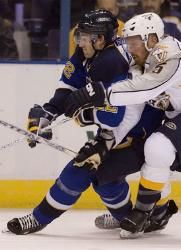 Brad Boyes 2006-2011 |
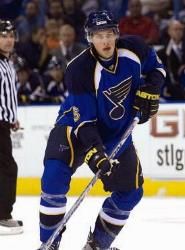 Erik Johnson 2007-2011 | 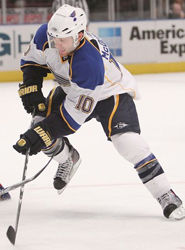 Andy McDonald 2007-2013 | 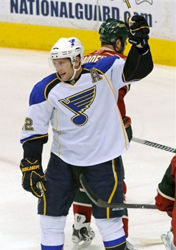 Matt D’Agostini 2009-2013 | 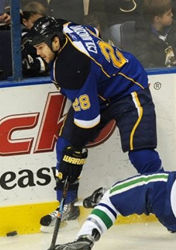 Carlo Colaiacovo 2008-2012, 2013/14 | 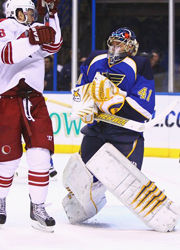 Jaroslav Halak 2010-2014 | 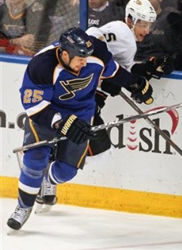 Chris Stewart 2010-2014 |
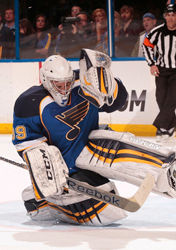 Ryan Miller 2013/14 | 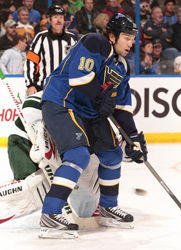 Brenden Morrow 2013/14 | 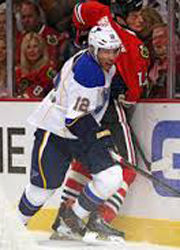 Derek Roy 2013/14 | 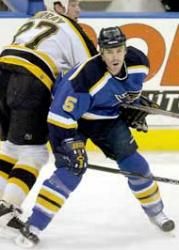 Barret Jackman 2001-2015 2003 Calder Trophy | 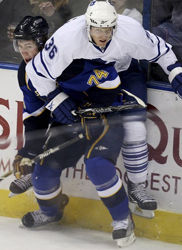 T.J. Oshie 2008-2015 | 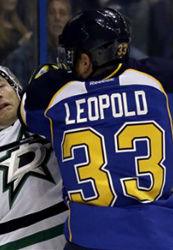 Jordan Leopold 2012-2015 |
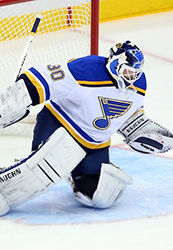 Martin Brodeur 2014/15 | 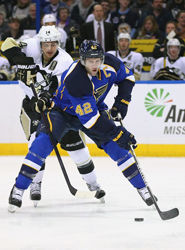 David Backes 2006-2016 | 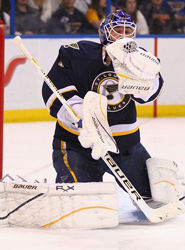 Brian Elliott 2011-2016 | 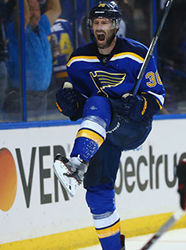 Troy Brouwer 2015/16 | 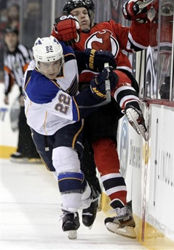 Kevin Shattenkirk 2010-2017 | 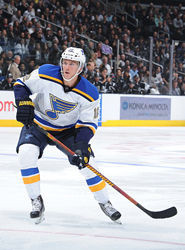 Jari Lehtere 2014-2017 |
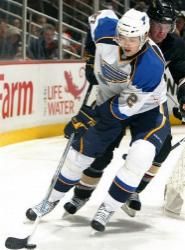 Patrik Berglund 2008-2018 | 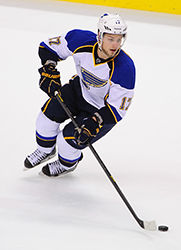 Vladimir Sobotka 2010-2014, 2016-2018 | 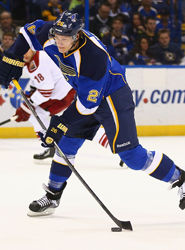 Paul Stastny 2014-2018 | 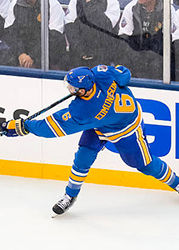 Joel Edmundson 2015-2019 | 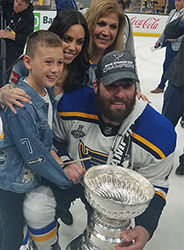 Patrick Maroon 2018/19 | 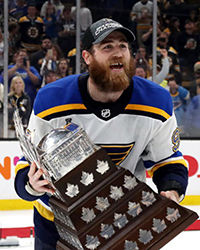 Ryan O’Reilly 2019 Selke Trophy & Conn Smythe |
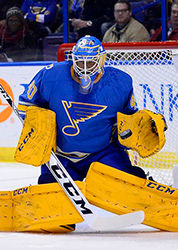 Carter Hutton 2016-2018 | 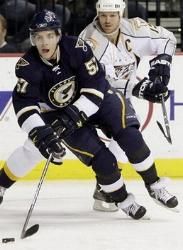 David Perron 2007-2013, 2016/17, 2018-Present | 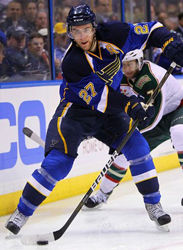 Alex Pieterangelo 2008-Present | 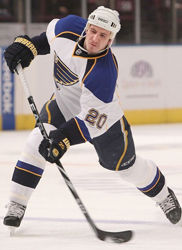 Aleander Steen 2008-Present | 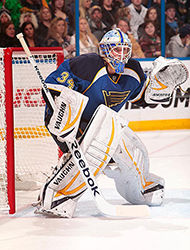 Jake Allen 2011-2013, 2014-Pres. | 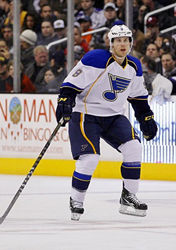 Jaden Schwartz 2011-Present |
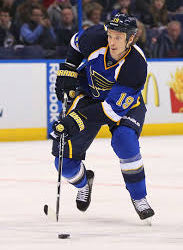 Jay Bouwmeester 2012-Present | 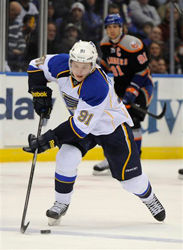 Vladimir Tarasenko 2012-Present | 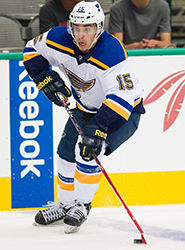 Robby Fabbri 2015-Present | 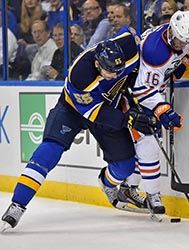 Colton Parayko 2015-Present | 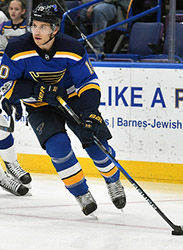 Brayden Schenn 2017-Present | 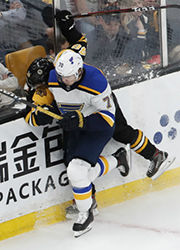 Oskar Sundqvist 2017-Present |
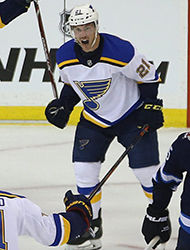 Tyler Bozak 2018-Present | 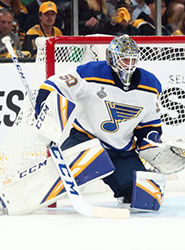 Jordan Binnington 2015/16, 2018-Present | 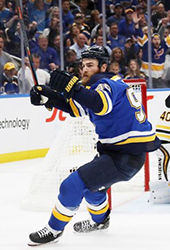 Ryan O’Reilly 2018-Present | 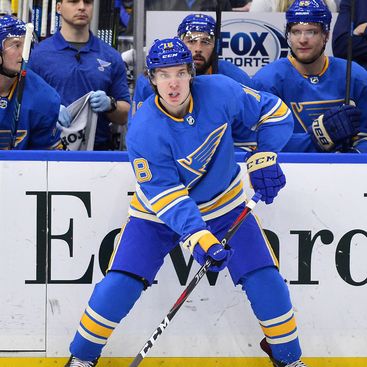 Robert Thomas 2019-Present | ||

